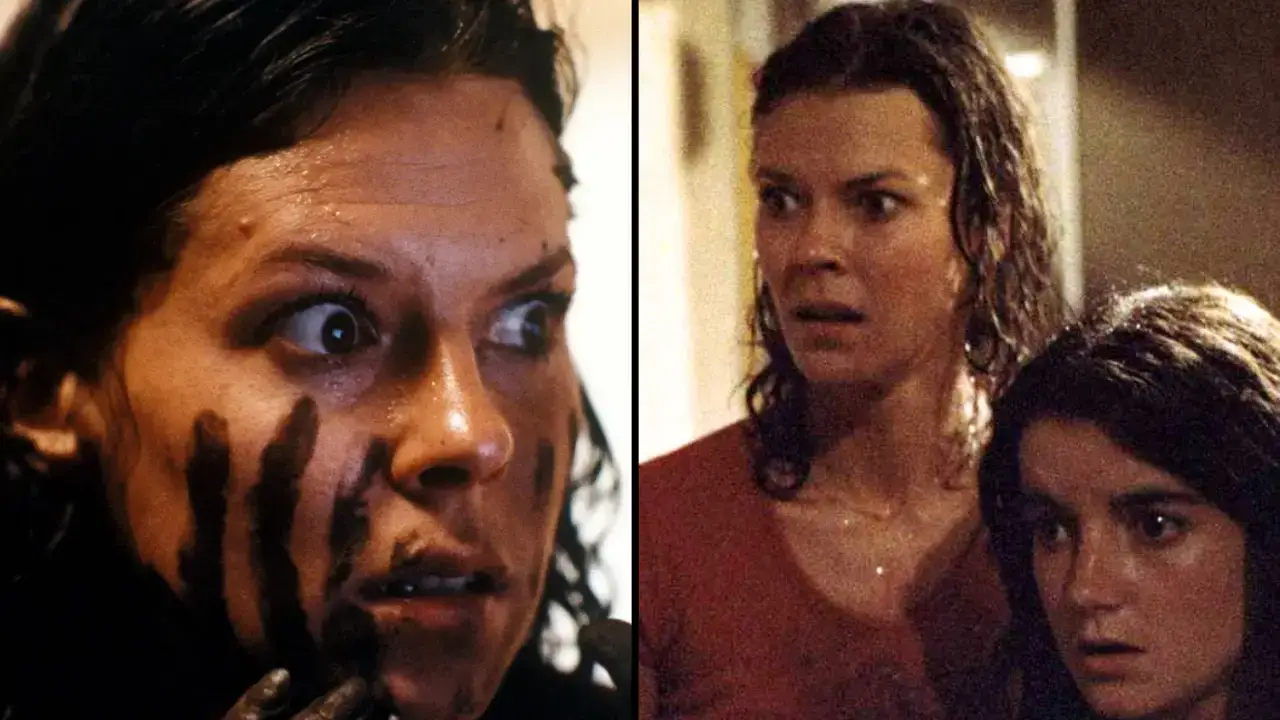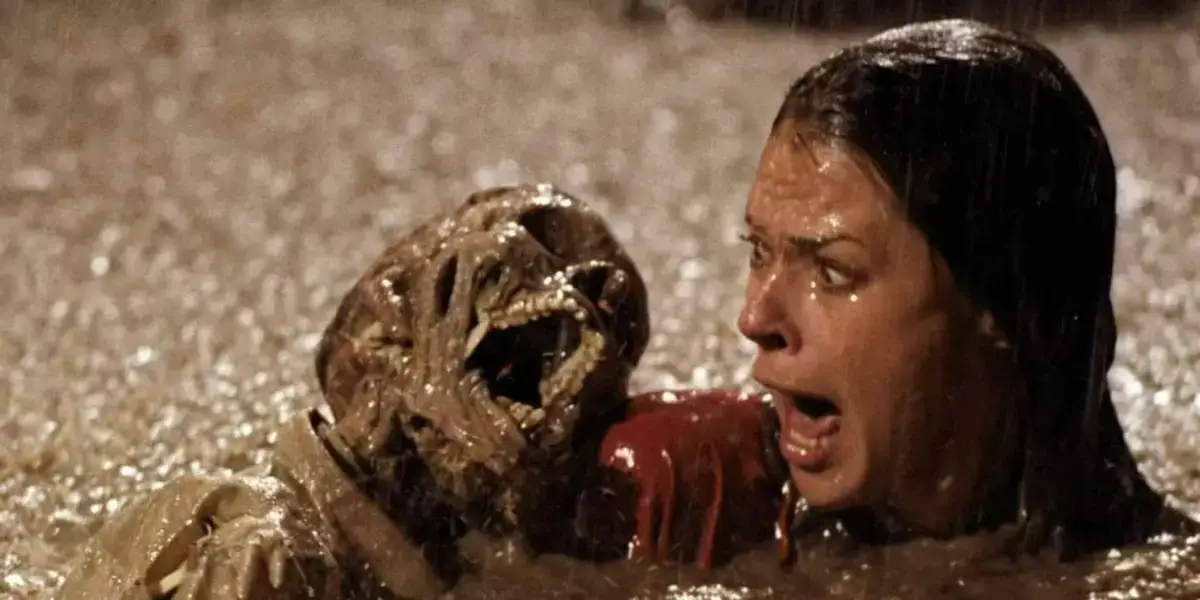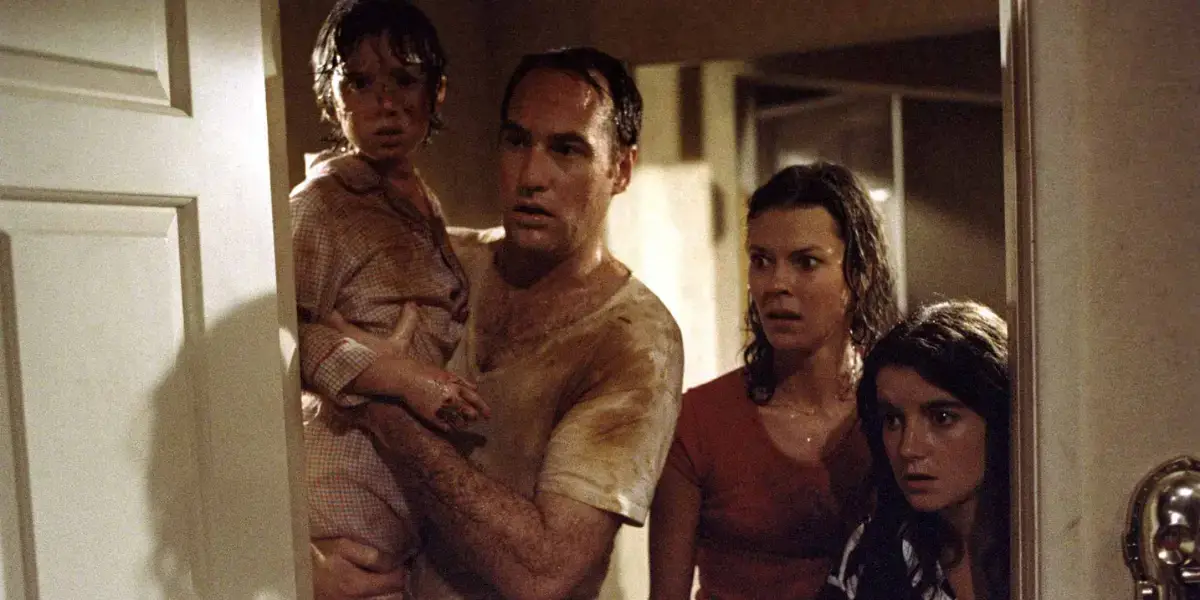
Credit: Metro-Goldwyn-Mayer
Actress Only Learned She Filmed Scene With Real Corpses After Movie Was Over
An actress only found out she was filming with real corpses after the movie was over.
The best horror movies are those that are somehow both totally terrifying and still feel real.
And one way to ensure things feel real?
To make them actually real.
One actress from an iconic horror film has opened up about the moment she realised those corpses she was acting with were actual, real-life skeletons.
Related Article: People Are Saying Underrated Movie From 2011 Perfectly Predicted The World Today
Related Article: Netflix Viewers Say ‘Bone-Chilling’ New TV Series Based On Terrifying True Story Is A ‘Must Watch’
If you’ve never seen it, Poltergeist is a total horror classic.
The 1982 film is a perfect example of a haunted house story, with an all-American family finding themselves tormented in their own home by a whole host of malevolent spirits.
Watching it now, it still holds up as a pretty terrifying watch – and that’s even without knowing about one particularly grim part of the movie’s lore.
At the end of the film, Diane (JoBeth Williams) is running away from the spirits within her home and stumbles into the unfilled pool in her back garden.

During a storm, the pool has become flooded with muddy water, and after Williams falls in, skeletons and corpses begin to bob up around her.
In classic horror style, the house was built on an ancient burial ground, and the bodies had been lurking under the home the entire time.
If that doesn’t sound scary enough, how about this?
The skeletons used in that scene were 100% real, as per Snopes.
In an interview on VH1 in December 2002, Williams says: “I would have to go into this huge tank of what I thought were mud with these skeletons — which, by the way, I thought were plastic, but later found out they were real skeletons. It was a real nightmare.”

And in a separate interview, aired as part of the TV Land show TV Land: Myths & Legends in 2008, she continues: “You have to understand that this sequence took probably four or five days to shoot.
“So I was in mud and goop all day every day for like four or five days with skeletons all around me [as I was] screaming.
“In my innocence and naiveté, I assumed that these were not real skeletons.
“I assumed that they were prop skeletons made out of plastic or rubber.
“I found out – as did the whole crew – that they were using real skeletons because it’s far too expensive to make fake skeletons out of rubber.
“And I think everybody got real creeped out by the idea of that.”
Related Article: Netflix Viewers Rate New Thriller Series 10/10 After Binge-Watching In One Day
Related Article: One Of The Most Underrated Horror Films Of All Time Has Dropped On Netflix
Bruce Kasson, the film’s assistant prop master, corroborates Williams’ account, saying: “They came from Carolina Biological. Replica skeletons did not exist, as far as I remember, at that time.
“They’re now common and relatively cheap. And the rush to the bottom line for cost will dictate.”
Special effects makeup artist Craig Reardon confirmed during a deposition: “I acquired a number of actual biological surgical skeletons is what they’re called.
“They’re for hanging in classrooms in study. These are actual skeletons from people. I think the bones are acquired from India.
“But at any rate, we got 13 of these. And we dressed them so that they looked not like bleached, clean, bolted-together skeletons but instead, disintegrating cadavers.
“And, you know, added sculptured rubber and things to them so they would have a kind of dramatic leering spooky aspect and not be dull – what am I trying to say – clinical type corpses, you know.”